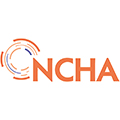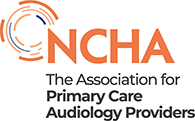31 January 2025
NCHA member update - 31 January
This month:
- NHS audiology provider faces insolvency
- NCHA meets MPs to promote benefits of care closer to home
- Government gives ‘green light' to innovative hearing technology
- Long waits continue for NHS hearing services
- BSHAA appoints new president
- NICE recommends hearing loss drug for children with cancer
- Healthcare science news
- Ears to the ground
- Health policy
NHS audiology provider faces insolvency
A social enterprise providing NHS-funded audiology services in Devon faces insolvency. Chime told DevonLive that local NHS commissioners were forcing it to do so.
Chime said it could not tackle the waiting lists because of a shortfall in funding from the Devon Integrated Care Board (ICB). The company said it had warned the ICB "repeatedly" over more than four years that NHS commissioners had not planned to meet growing needs within the block contract.
Devon ICB is seeking a new provider based on its own report of the area's audiology services, which found that waiting lists in East Devon, where Chime provides services, were months longer than in other areas. The report was not made public.
Chime is the sole provider of NHS-funded adult and children's services around Exeter. Its managing director, Jonathan Parsons, said it was unfair to compare its waiting lists to those in areas with 'any qualified provider' arrangements that give patients more choice. The provider said it had repeatedly suggested that widening contracts to other providers could reduce waiting lists.
Chime is a community interest company, which means any surplus it makes is invested back into the service. In 2022, it won the NHS England award for service delivery as part of Excellence in Healthcare Science.
The Health Service Journal quoted the ICB's report as saying: "A business decision made by the provider that they cannot afford to increase activity within the block funding has meant that there has been a self-imposed 'cap' on activity. This has caused significant increases in waiting times and created an inequity of access for eastern [Devon] patients."
Harjit Sandhu, NCHA chief executive, said: "Of course, we do not know the full details of this case. However, we have seen many scenarios in which NHS commissioners do not follow the evidence on local needs when planning hearing services or set unrealistic budgets and suggest providers are responsible for not meeting needs."
He added. "To support NHS commissioners plan services to meet growing need, the NCHA led efforts to co-produce a JNSA guide and data toolkit with other sector partners, public health experts and NHS England.
"We hope ICBs will plan services based on the best available data and show that they align budgets with NHS England guidance on activity assumptions and pricing rules. We are about to commence a national research project into the state of audiology services, and will look into how ICBs make planning assumptions to ensure needs are met in safe and sustainable ways."
The ICB has now opened up the procurement process in east Devon. The services will be split between routine and specialist audiology.
NCHA meets MPs to promote benefits of care closer to home
The NCHA policy team joined colleagues from general practice, dentistry, pharmacy and primary eye care to call on MPs to back the shift towards primary care and take prevention more seriously.
More than 40 MPs participated in the Future of Primary Care event, which highlighted the benefits to patients and the health system of delivering the government's three 'big shifts' for the NHS - hospital to community, analogue to digital and sickness to prevention.
Organisations behind the event said that tens of thousands of providers were already offering NHS services in primary care settings out of hospitals across England, but more needed to be done for the government to achieve its goals for the NHS in a sustainable way.
They called on the MPs present to ask the government to work closely with the sector to put patients first and reform NHS funding flows, recommendations of the Lord Darzi's independent review into the NHS.
Many MPs at the event were keen to discuss audiology and how to address the challenges people faced in accessing ear and hearing care.
Jenny Lincoln, the NCHA's head of policy, said: "With ear and hearing needs set to grow as our population ages, the government must now take the crucial next step of rolling out an NHS-funded primary care audiology service nationwide. This is the only way to deliver on the secretary of state's vision to put patients in the driving seat and treat them on time."
Government gives 'green light' to innovative hearing technology
The Department of Health and Social Care (DHSC) has published a policy statement outlining how, in some cases, people can manage their hearing loss through over-the-counter devices within the existing framework of regulations protecting the function of assessing hearing and dispensing hearing aids.
The DHSC said its guidance "gives businesses the green light to sell certain pioneering hearing aids", embracing innovative technology while urging people to continue to consult a healthcare professional for concerns about their ears or hearing.
Read our response to the DHSC statement here.
Long waits continue for NHS hearing services
NHS England figures show waiting times for ENT and audiology services remain stubbornly high.
Audiology had the highest proportion of patients waiting six weeks or more out of the 15 diagnostic tests. Its figure of 42.3% in November 2024 represents a 5 percentage point rise versus the previous year. Ear Nose and Throat had the highest number of incomplete referral-to-treatment pathways for consultant-led elective care, at 633,000.
Earlier this month, the government announced measures to make more appointments available outside hospital. It stated that the community could provide about 30% of referrals currently made to ENT hospital departments. Read the details.
Michael Marchant has become the new president of The British Society of Hearing Aid Audiologists, taking over from Rob Donnan, who was in the role for the past two years.
Mr Marchant, managing director of Audibility in Scotland, has previously been vice president and chair of the quality standards group. He told Audiology World News that he would "do the right thing, give a damn and make a difference".
NICE recommends hearing loss drug for children with cancer
The National Institute for Health and Care Excellence (NICE) has recommended a treatment to help stop babies, children and young people having chemotherapy from losing their hearing.
Doctors routinely use the drug cisplatin to treat many cancers in children but as it builds up in the inner ear it can cause harm to hearing. About 60% of children receiving cisplatin-based treatment develop irreversible hearing loss.
NICE has produced final draft guidance recommending that children receiving cisplatin also take anhydrous sodium thiosulfate, trade name Pedmarqsi, which binds to the excess chemotherapy drug and prevents damage to the ear without reducing its effectiveness.
Research from two clinical trials showed children treated with the drug while taking cisplatin were nearly half as likely to develop hearing loss as those who did not take it. Read more.
- The Academy of Healthcare Science (AHCS) has updated its Good Scientific Practice guidelines, setting standards for safe and effective working methods.
- Healthcare Science Week 2025, a celebration of more than 50 specialisms including audiology, will run from 10 to 16 March. Read more.
- The AHCS is sponsoring the Advancing Healthcare Awards UK 2025 to highlight good, effective practices. Closing date for entries: 14 February.
- The Health and Care Professions Council has published figures showing the number of registered hearing-aid dispensers is now more than 4,400. See more.
- The British Society of Audiology seeks nominations for awards honouring individuals who "promote excellence in hearing and balance". Deadline: 1 March.
- Tinnitus UK is running an event focusing on excellence in tinnitus care at the Royal College of Surgeons in London, on 4 February.
- DeafblindUK has opened an education and research centre in Birmingham, dedicated to addressing the isolation felt by many deafblind people. Read more.
- The National Institute for Health and Care Research is supporting a trial to develop virtual reality training to improve localisation in children with severe-to-profound hearing loss.
Health officials under fire from public accounts committee
NHS England issued a statement in response to a Public Accounts Committee report, which described senior health officials in England as complacent and lacking the drive and ideas to implement the government's plans for health service reform.
"The report from the Public Accounts Committee (PAC) contains basic factual inaccuracies and a flawed understanding of how the NHS and the government's financial processes work," said an NHS England spokesperson.
The Guardian reported PAC chair Sir Geoffrey Clifton-Brown as saying: "Given the position of the NHS, forcing this committee to wade through treacle by mouthing the same platitudes of incremental change is simply not going to cut it."
The PAC also said that the longstanding ambition to provide more out-of-hospital care had stalled and described progress in embracing modern communications as "glacial".
NHS England publishes operational plans
NHS England published its operational planning guidance for 2025/26, the first since the government was elected in July,. It emphasises "timely care for patients" and "increasing productivity". The guidance promises to reduce elective care waiting times so that 65% of patients wait less than 18 weeks for treatment by March 2026.
The number of national targets in the new guidance has been halved, focusing on driving down waiting lists. NHS England said reducing national priorities would allow local healthcare systems greater spending flexibility "to plan better and more efficient services for their population".
NHS England announced it will cut about 15% of its staff, 2,000 jobs, to save £325 million next year.
ISPs to help with waiting lists
Earlier this month, the prime minister announced government plans to use the independent sector to help cut NHS waiting lists. He said: "When the waiting lists have ballooned to 7.5 million, we will not let ideology or old ways of doing things stand in the way of getting people's lives back on track."
Health secretary Wes Streeting said: "Millions of patients are being forced to wait unacceptably long for treatment, failed by 14 years of neglect of the NHS. This government will pull every lever available to get patients treated on time again."
The government has pledged that 92% of patients meet the 18-week target for referral to treatment by 2029. Read the NCHA's response to the announcement.
Meanwhile, new figures from the Independent Healthcare Network Providers (IHNP) show that between January and November last year, independent providers helped remove 1.5 million from NHS waiting lists.
The IHNP reported that independent providers consistently delivered 10% of all NHS elective care, including scans, tests and surgical procedures, free at the point of use. The data also showed NHS patients in the independent sector were treated more quickly than the health service average , waiting just over 11 weeks compared with an average of 18 weeks for those NHS providers saw.

Press enquiries
Media enquiries should be directed to [email protected] or call 020 7298 5110.
We are happy to put you in touch with our expert policy advisers who can comment on a variety of issues.
You can also follow us on Twitter and LinkedIn.

 Your hearing and aural health
Your hearing and aural health  Commissioners and Policymakers
Commissioners and Policymakers  Member support and guidance
Member support and guidance News and views
News and views
 Hearing map
Hearing map
